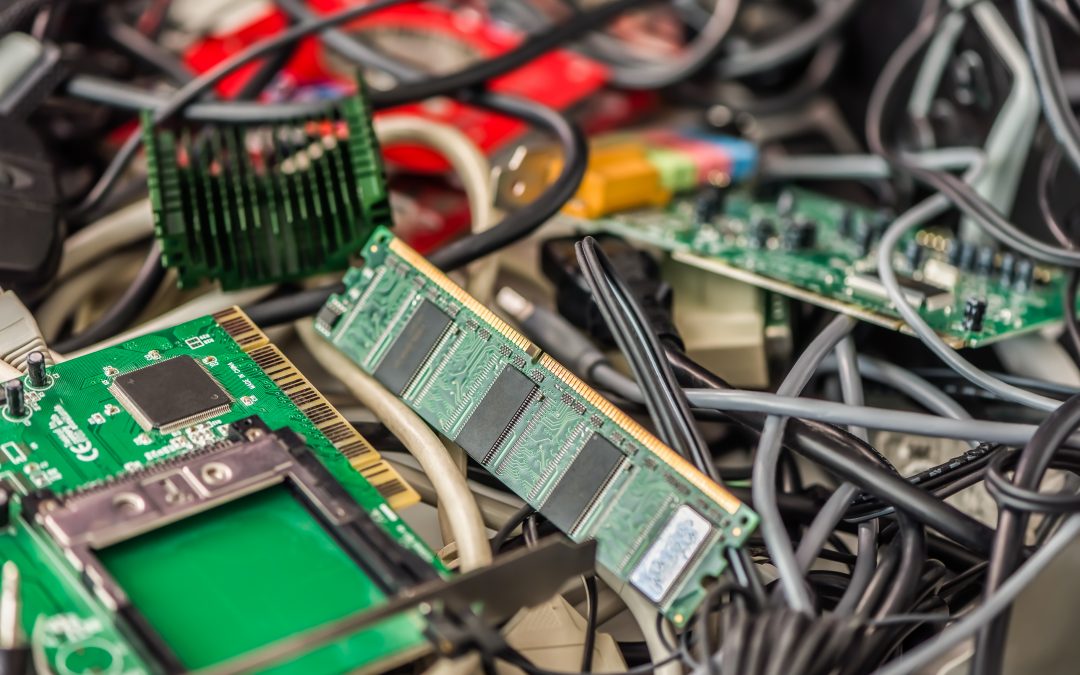In today’s digital age, electronic devices have become an integral part of our daily lives. From smartphones to laptops, we rely on these gadgets for communication, entertainment, and work. However, the rapid growth in technology has also led to a significant increase in electronic waste, with detrimental effects on the environment. Understanding the environmental impact of electronic waste is crucial to taking action and finding sustainable solutions to this growing issue.
The Growing Mountain of Electronic Waste
The escalation of electronic waste, or e-waste, is a critical environmental concern that reflects the dark side of our technological advancements. As new gadgets continuously replace older models at an ever-faster pace, many electronic devices are deemed obsolete and discarded. The Global E-waste Monitor highlights a stark reality, revealing that in 2019 alone, the world produced approximately 53.6 million metric tons of e-waste, a figure that starkly contrasts with the mere 17.4% that underwent recycling processes. This accumulating pile of e-waste not only represents a missed opportunity for resource recovery but also signals a pressing challenge for waste management practices globally. The rapid accumulation underscores the urgent need for effective and sustainable strategies to address the lifecycle of electronic products, emphasizing the critical role of recycling and the conscious consumption of technology to stem the tide of electronic waste inundation.
How Electronic Waste Harms the Environment
When e-waste is improperly discarded, it poses severe risks to our ecosystems and public health. Landfills overloaded with electronic waste become hotbeds for hazardous chemicals that leech into the soil and waterways, undermining the integrity of our natural resources. The consequences extend beyond soil contamination; groundwater, which is a critical source of drinking water for communities around the globe, is at risk of becoming polluted with heavy metals and toxic substances originating from e-waste.
Furthermore, the practice of burning discarded electronics, a common method used to reduce waste volume or recover valuable materials, exacerbates air pollution. The release of dioxins, furans, and particulate matter into the atmosphere not only contributes to global warming but also poses significant health risks to nearby populations. These pollutants have been linked to respiratory problems, skin disorders, and other serious health conditions. The environmental ramifications of e-waste necessitate a shift towards responsible disposal and recycling practices to safeguard our planet and well-being.
The Toxic Components of Electronic Waste
The inner workings of our beloved electronic gadgets harbor materials that, while crucial for their functionality, turn perilous when discarded improperly. Among these, lead and mercury stand out for their widespread use and potent toxicity. Lead, commonly found in computer monitors and televisions, can cause developmental issues in children and kidney damage in adults. Mercury, used in flat screen displays, poses grave threats to the nervous system and kidneys. Cadmium, another toxic heavy metal prevalent in rechargeable batteries, has been linked to bone and kidney problems. Equally concerning are brominated flame retardants used in electronic casings, which can disrupt endocrine function and have been associated with long-term impacts on brain development and the reproductive system.
The mishandling of e-waste leads to the release of these substances into our environment, where they persist and bioaccumulate, posing significant risks to wildlife and human populations alike. Proper recycling practices are not just beneficial but essential to prevent the entry of these hazardous materials into our ecosystems. Awareness and action toward the responsible disposal of e-waste are imperative to curtailing the environmental and health hazards posed by these toxic components.
Recycling: A Sustainable Solution to the E-Waste Crisis
Recycling emerges as a cornerstone in combating the e-waste crisis by facilitating the recovery and reuse of precious resources embedded in discarded electronic gadgets. Through the recycling process, many materials, such as copper, silver, gold, and palladium, can be efficiently extracted and redirected into the manufacturing stream of new products. This cycle not only conserves finite natural resources but also significantly diminishes the environmental toll associated with mining and raw material extraction. Moreover, recycling serves to intercept harmful substances before they infiltrate landfills or undergo incineration, a critical step in curtailing the dispersal of toxic elements into the ecosystem.
By engaging in and advocating for the recycling of electronic waste, we contribute to a reduction in greenhouse gas emissions, lower the demand for energy-intensive raw material processing, and foster a circular economy that prizes sustainability over disposability. The impetus to recycle is bolstered by the understanding that each action taken alleviates the pressure on our environment, conserves valuable resources for future generations, and positions recycling as an indispensable strategy in the quest to mitigate the adverse impacts of electronic waste.
How You Can Make a Difference!
Taking proactive steps to address the e-waste challenge is something each of us can do to protect our environment and support sustainable practices. As a reputable electronics recycling company, Potomac eCycle stands at the forefront of efforts to reduce the environmental impact of discarded electronic devices. They specialize in the secure and responsible recycling of a broad array of electronics, ensuring that hazardous materials are safely managed, and valuable resources are recovered for reuse.
By choosing to recycle your electronics through services provided by Potomac eCycle, you’re not just disposing of your devices responsibly; you’re also participating in a larger movement towards environmental sustainability. Together, by making informed decisions about how we dispose of our electronics, we can make significant strides in combating the e-waste crisis and paving the way for a healthier planet for future generations. Contact us today to learn more!


Recent Comments